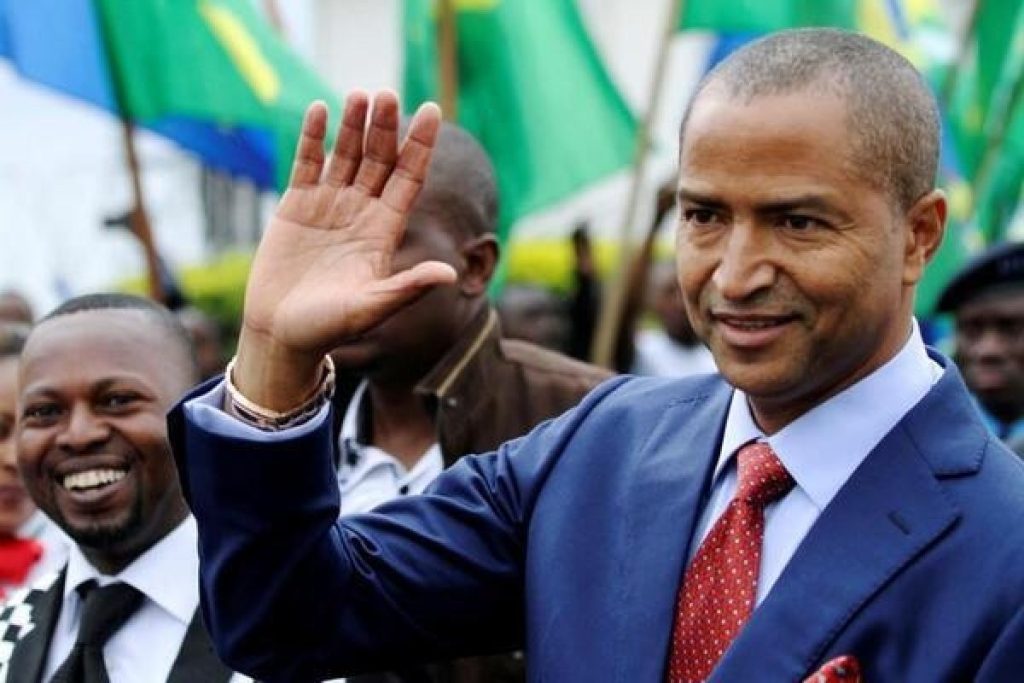A new race law is set to be put before the Congolese parliament that will disbar the president’s 2023 election rival. By Issa Sikiti da Silva in Kinshasa.
Popular opposition politician Moïse Katumbi faces being banned from standing against President Felix Tshisekedi in the Democratic Republic of the Congo’s (DRC) 2023 presidential poll. A draft law that would limit presidential eligibility to DRC citizens born to a Congolese mother and father is currently waiting to be voted into law by parliament and has the political class and general public divided. The Congoleseness Bill is an initiative of Noel Tshiani, a 2018 presidential election loser from the same ethnic group as the president. Katumbi, a wealthy politician and chairman of TP Mazembe football club, was born in 1964 in the mineral-rich Katanga province, near the Zambian border. His father is a Sephardic-Jewish businessman from Greece, while his mother is from the Bemba ethnic group and is thought to descend from Zambian royalty. Critics of the draft legislation, described as discriminatory and unconstitutional, say it’s an attempt to sideline popular candidate Katumbi, who heads the Together for the Republic party. Katumbi was also prevented from running in the previous elections in 2018, when President Joseph Kabila blocked him from entering the country. It has led to a rise in xenophobic attacks on the politician. At a recent anti-Katumbi gathering on the streets of the capital, Kinshasa, the mixed-race MP was denounced as a foreigner and told to ‘go back’ to Zambia.
‘There are no Bembas left in Congo,’ a man identified as Alino told the crowd. He said the Bembas left the country ‘centuries ago’, adding: ‘This means that though he was born in Congo, Katumbi is a true Zambian who should go back to Lusaka.’
‘The speed with which members of parliament loyal to the president and his ruling Union for Democracy and Social Progress (UDPS) are pushing for this bill to be enacted is clearly demonstrating that Tshisekedi is gunning for Katumbi,’ Antoine Lukoki, a retired schoolteacher and political observer, told News Africa. Though his Together for the Republic party currently forms part of the ruling ‘Holy Union’ coalition, Katumbi has said he would quit the group if the Congoleseness Bill passed into law. Meanwhile, the UN has warned of potentially dangerous consequences that could be generated from the nationality debate that could fuel political unrest and violence. Many experts argue that the bill, which is expected to be debated in the next parliamentary session, is divisive, separatist and unconstitutional.
‘I’m not an Afro-pessimistic, but I firmly believe that the country could explode if the law is approved and Katumbi is barred from running for president in 2023,’ Lukoki said.
‘The current political atmosphere is hostile and very tense. Who knows? There could even be a possibility of the Katanga province seceding from the DRC to become a separate state. Tshisekedi must trade very carefully.’
Tensions are rising in the vast, mineral-rich central African nation, where supporters of the president are adamant that the former Katanga governor should be deported.
‘Katumbi is a foreigner and an infiltrator,’ Jean-Bosco, a UDPS supporter, told News Africa.
‘He is not a Congolese citizen. He should be barred from running for president in 2023.’
Leonard Matala-Tala, a public law expert and researcher at the University of Lorraine in France, told News Africa that the situation in the DRC was very complex.
‘The issue of Congolese nationality is always being revisited as the elections approach. To put it simply, there is a lack of rule of law in the DRC,’ Matala-Tala said.
‘As a result, no one can certify with accuracy the nationality of a Congolese politician. It is so easy to obtain a Congolese passport since Mobutu left. The case of Moïse Katumbi is just a scarecrow brandished by the government.
‘Everything can be bought and sold, even one’s own family. What a pity for a country that has so much potential – human, geological, among others – with a youth full of resources but completely abandoned to itself.’
The ongoing nationality row is not for the first time that Katumbi has been targeted by a sitting president. Prior to 2018 presidential elections, the Kabila administration alleged that the millionaire was forming a rebel group to overthrow the government and foment civil war in the country. Katumbi was subsequently taken to court, forced into exile and given a three-year jail sentence in absentia. He only returned home after the Kabila presidency, and his sentence has since been overturned. Ironically, the former president’s nationality was always a subject of hot debate during his 18-year reign. Matala-Tala, a researcher at the Canadian think-tank CAP-Afriques said Kabila faced claims he was a Rwandan citizen who should not have ruled the DRC. Citizens who publicly questioned Kabila’s nationality during his presidency were arrested, tortured and sentenced to years-long spells in the country’s notorious Makala Prison.


